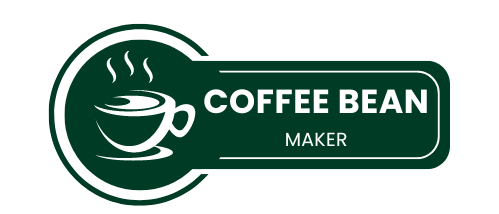When considering the myriad options available for brewing coffee at home, a pressing question often arises: How much should I spend on a coffee maker? This query is crucial as the market offers a broad spectrum of machines, from basic models costing less than to sophisticated machines priced over 00. This guide aims to navigate the often perplexing landscape of coffee makers, helping you align your coffee needs and budget with the right machine, ensuring every cup of coffee justifies your investment.

1. How Much Should You Spend on a Coffee Maker?
Introduction: The Importance of Investing in a Quality Coffee Maker
When it comes to brewing coffee at home, the coffee maker you choose can significantly impact your overall coffee experience. A quality coffee maker not only affects the flavor of your coffee but also determines the convenience and enjoyment of your brewing process. Investing in a good coffee maker is crucial because it directly influences how your coffee tastes every morning and can affect your satisfaction with each cup. Whether you’re a casual drinker or a coffee enthusiast, understanding the value of a good coffee maker can help you make a better decision about how much to invest.
Factors Influencing the Cost of Coffee Makers
The price of coffee makers varies widely based on several factors, making it important to consider what influences the cost:
- Type of Coffee Maker: The kind of coffee maker—be it drip, espresso, single-serve, or French press—can have a major impact on price. Espresso machines tend to be more expensive due to their complexity and the technology involved.
- Features and Technology: Advanced features like programmability, built-in grinders, water filtration systems, and brewing temperature controls can increase the cost. High-tech machines that offer more control over the brewing process typically command a higher price.
- Build Quality and Materials: Coffee makers made with high-quality materials such as stainless steel are usually more expensive but offer greater durability and aesthetic appeal.
- Brand Reputation and Warranty: Well-known brands often charge more due to their established reputation for quality and reliability. Additionally, products with extended warranties might come at a premium but offer peace of mind regarding potential repairs or replacements.
2. Coffee Maker Options by Price Range
2.1 Entry-Level Coffee Makers ($20 – $100)
For those new to brewing at home or who prefer a straightforward cup of coffee without the frills, entry-level coffee makers offer an affordable gateway.
Features:
- Basic functionality with minimal programmable features.
- Mostly drip and single-serve coffee makers.
- Simple designs and easy operation.
Best for Casual Drinkers:
- Ideal for individuals who are not particular about bean types or brewing techniques.
- Suitable for users who prioritize convenience and speed over customization.
Pros:
- Cost-effective and widely available.
- Low maintenance and user-friendly.
- Consumes less counter space.
Cons:
- Limited flexibility in customizing brew strength and temperature.
- Generally lower durability and shorter lifespan.
- Often lacks additional features like a timer or brew strength control.
2.2 Mid-Range Coffee Makers ($100 – $500)
This category is perfect for regular coffee drinkers looking for a quality brew without investing in a high-end machine. Mid-range models offer a good balance between cost and features.
Features:
- Enhanced programmability, such as adjustable temperatures and brew strengths.
- Greater durability with better build quality.
- Some models may include grinders or options for different coffee styles.
Recommended for Regular Coffee Drinkers:
- Suitable for those who appreciate a good cup of coffee and may experiment with different beans and grinds.
- Great for households with multiple coffee drinkers.
Pros:
- Better quality coffee with more brewing options.
- Typically includes warranties and better customer support.
- Sturdier construction with longer-lasting materials.
Cons:
- More expensive than basic models; higher initial investment.
- Can be larger in size, taking up more counter space.
- Potentially higher maintenance depending on features.
2.3 High-End Coffee Makers ($500 and up)
High-end coffee makers are designed for enthusiasts and connoisseurs who demand the best from their coffee experience, often mirroring café-quality equipment.
Features:
- Premium brewing technology with precise control over every aspect of the coffee brewing process.
- Includes options for espresso, cappuccino, and other specialty coffees.
- High-quality materials and build for lasting durability.
Best for Enthusiasts and Connoisseurs:
- Ideal for those who consider coffee brewing an art and are willing to invest time and money.
- Perfect for individuals who want to replicate a professional café experience at home.
Pros:
- Superior flavor extraction and variety in coffee styles.
- Often includes advanced features like touchscreens, programmable settings, and WiFi connectivity.
- Durable construction meant to last many years with proper care.
Cons:
- High cost that may not be justifiable for all users.
- Complex functions that may require a learning curve.
- Larger size and may require more maintenance.
3. Deciding Factors When Choosing a Coffee Maker
3.1 Frequency of Use
The frequency with which you brew coffee plays a crucial role in determining the kind of coffee maker that best suits your needs. How often you use your coffee maker can help decide whether a higher investment might be worth it for durability and quality.
- Occasional Use: For those who only make coffee occasionally, a simpler, more affordable machine may suffice.
- Daily Users: If you brew coffee daily or multiple times a day, investing in a more robust and efficient machine can offer better long-term value, as these models are typically built to handle more frequent use.
3.2 Desired Features
The features you desire in a coffee maker can significantly impact your decision. Modern coffee makers come with a variety of features that can enhance convenience, improve the quality of your coffee, and fit into your lifestyle.
- Programmable Settings: Allow you to set your coffee to brew at a specific time, so it’s ready exactly when you need it.
- Milk Frothing Capabilities: Important for those who enjoy lattes, cappuccinos, or other espresso-based drinks.
- Strength Settings: Some machines offer brewing strength options, which is beneficial if you prefer a stronger or milder flavor.
- Thermal Carafe: Keeps coffee hot for hours without the need for a heating plate, which can alter the coffee’s flavor over time.
3.3 Long-Term Costs
The initial cost of a coffee maker is just one part of your investment. Considering the long-term costs associated with your choice can ensure you make a financially sound decision.
- Maintenance and Repairs: Higher-end machines may have higher maintenance costs and may require professional servicing.
- Energy Efficiency: Some coffee makers use a significant amount of electricity, especially those with many electronic features or those that keep coffee warm for extended periods.
- Coffee Consumption: Certain machines, especially those that use pods or capsules, might lead to higher costs per cup compared to traditional brewing methods.
4. Brands and Their Impact on Price
Recognized Brands vs. Generic
When shopping for a coffee maker, the brand can significantly influence both the price and perceptions of quality. Well-known brands like Breville, DeLonghi, and Keurig have established reputations that often command higher prices, but they also typically offer reliability, advanced technology, and customer support that can justify the extra cost.
Recognized Brands:
- Breville: Known for high-quality appliances, Breville coffee makers often feature sophisticated brewing technologies and robust designs. They cater to coffee enthusiasts who seek precision and variety in their brewing methods.
- DeLonghi: Offers a wide range of coffee makers, from simple drip models to high-end espresso machines. DeLonghi is celebrated for its durable designs and Italian craftsmanship, appealing to a broad audience.
- Keurig: Pioneers of the single-serve coffee maker, Keurig is synonymous with convenience and speed. Their machines utilize pods to deliver a variety of coffee flavors and types quickly and effortlessly.
Generic Brands:
- Generic or lesser-known manufacturers might not have the same level of brand recognition but can offer competitive pricing. These brands often focus on basic features without the frills to keep costs down, which can be attractive to budget-conscious consumers.
- While generic brands may lack the advanced features of their branded counterparts, they can still provide satisfactory performance and durability for everyday needs.
Comparison:
- Quality and Innovation: Recognized brands often invest more in research and development, resulting in innovative features that enhance the coffee experience. This can include customizable settings, better temperature controls, and more sophisticated interfaces.
- Customer Support and Warranties: Big brands usually offer more comprehensive customer service, including longer warranties, return policies, and responsive help desks. This added support can be crucial for dealing with maintenance issues or product faults.
- Resale Value: Coffee makers from well-known brands generally have better resale values, thanks to their perceived durability and quality.
